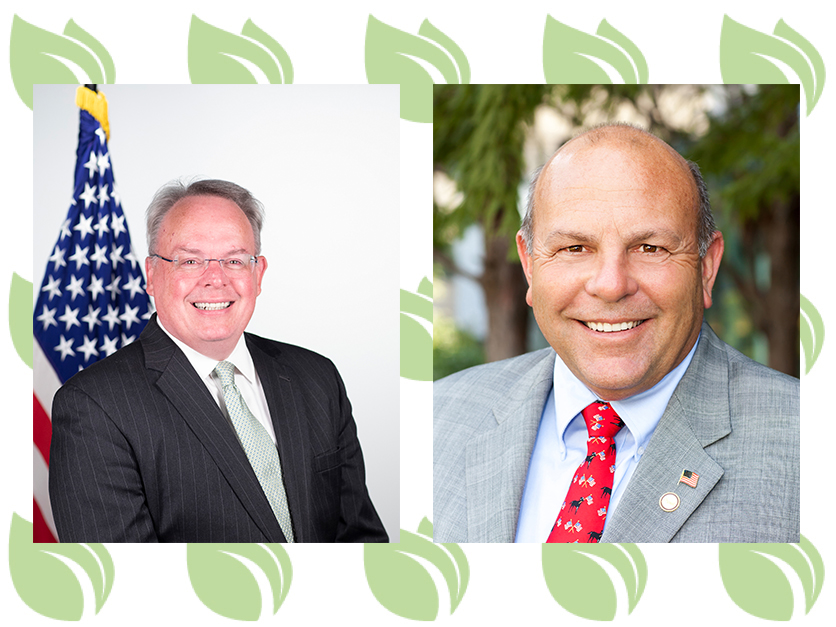From the Central Valley of California to the coast of Maine and the Heartland in between, our Nation is in the midst of a devastating crisis of drug addiction. In 2018, provisional numbers show nearly 70,000 Americans, or nearly 200 people each day, died as the result of a drug overdose. Rural America is not immune to this disease. A survey by the American Farm Bureau Federation found that nearly 50 percent of rural Americans, and 74 percent of farmers, have been directly impacted by opioid abuse. The crisis of drug addiction knows no geographic or economic boundaries.
We have seen this reality in our own travels throughout rural America. Consider the story of John and Connie Gyorr, farmers and Farm Bureau members from Monticello, Illinois, who tragically lost their 20-year-old daughter Marisa to the disease of addiction. Marisa was a straight “A” student with a zest for life and a laugh that was contagious. When she developed diabetes, Marisa became depressed and eventually turned to drugs to cope. In her mother Connie’s words: “People might not realize that there are no boundaries. This can affect families everywhere.”
For many families, urban and rural, drug addiction begins with the misuse of prescription medication. According to the National Survey on Drug Use and Health, nearly 10 million Americans misused prescription opioids in 2018. The majority of these drugs were obtained from family and friends, often from a home medicine cabinet.
On Saturday, October 26, each of us can take immediate action to protect our family, our friends, and our hometown from the tragic consequences of drug misuse by participating in the National Prescription Drug Take Back Day.
Go to your home medicine cabinet. Identify unused or expired medications. Visit takebackday.dea.gov to find a safe collection site near you and drop them off so they do not end up in the wrong hands. Under President Trump’s leadership, the DEA’s National Take Back Day events have shattered records, collecting 4.6 million pounds of unused or unwanted prescription drugs.
By doing something as simple as getting rid of unused prescription drugs, you can save the life of a friend, a neighbor, or a loved one. Beyond disposing of old medications, you can also help anyone in your hometown who is already struggling with addiction get help.
Especially in rural America where pride runs deep, stigma can be a significant barrier to building strong, healthy, and drug-free communities. Rural families are looking for help but they may be too embarrassed to talk with anyone or they may feel all alone. With the loss of their daughter Marisa, John and Connie have started Marisa's Purpose: Faith, Hope, and Love, a non-profit to help connect other families in need with resources. This is a powerful example that we all can do something to help people around us find hope.
Educate yourself about how to recognize the signs of addiction and know some of the resources that are out there to help. For example, the American Farm Bureau Federation and National Farmers Union have created the farmtownstrong.org website specifically to provide information for farm families impacted by the opioid crisis. In addition, the Substance Abuse and Mental Health Services Administration has a treatment locator to connect people seeking help with addiction and mental health concerns to treatment facilities. Health centers, funded by the Health Resources and Services Administration, provide high quality primary care including treatment for substance use disorders regardless of your insurance status or ability to pay. You can find a health center near you here.
You don’t have to be an expert, but you can be a resource for a friend, neighbor, or loved one.
Thanks to Trump Administration actions to combat this crisis, we are already seeing results, with drug overdose deaths falling for the first time in decades. Overdose deaths fell up to 24% in the hardest hit states, like Ohio and Pennsylvania. This Saturday, we can all take an important step forward to save even more lives in rural America by safely disposing of unused prescription medications at a Take Back Day collection site. In addition, we can support healing in our communities by encouraging our friends, neighbors, and family members who are struggling with addiction to get help. Together, we can build rural places of hope now and for generations to come.
Jim Carroll is Director of the White House Office of National Drug Control Policy. Zippy Duvall is President of the American Farm Bureau Federation.
For more news, go to www.agri-pulse.com.

